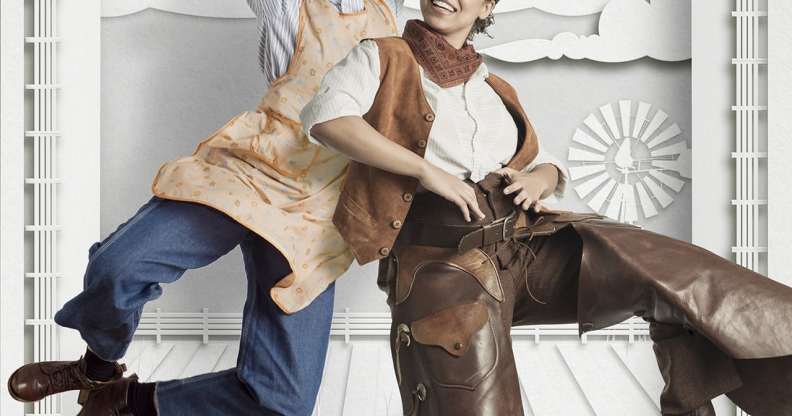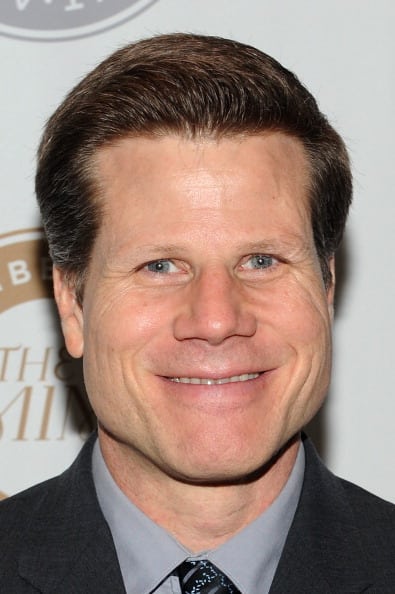Christians are worried gay people are ruining the musical ‘Oklahoma!’

The Christian Broadcasting Network (CBN) has penned a critical article about a same-sex version of the hit musical Oklahoma!, saying that it is the “latest activist effort to twist classic American entertainment into pro-gay entertainment.”
CBN published the article on Tuesday (August 21) in response to a piece by The New York Times about the LGBT+ friendly play, which debuted at a theatre in Ashville, Oregon, in April, and is set to run until October.
The same-sex version, created by Bill Rauch, who is artistic director of the Oregon Shakespeare Festival, replaced the main couple Curly and Laurey with two women, played by actors Tatiana Wechsler and Royer Bockus respectively.
It includes a gay romance between two male characters Ado Andy and Will Parker, instead of the original love story between Ado Annie and Will Parker.

CBN has hit-out at an LGBT+ friendly adaptation of hit musical “Oklahoma!”. (The Christian Broadcasting Network/Facebook)
The adaptation also casts character Aunt Eller as a trans woman, and is played by a trans woman.
The original play, by Richard Rogers and Oscar Hammerstein, first opened on Broadway in 1943.
“It’s just the latest activist effort to twist classic American entertainment into pro-gay entertainment,” CBN’s multimedia news producer Steve Warren writes.
“For example, as CBN News reported, Netflix recently produced an adaptation of the 1908 novel Anne of Green Gables, which was revised to include multiple homosexual characters.”
CBN is also critical about the rights for the play being given to Concord Music, which gave the same-sex version the green light.

Oregon Shakespeare Festival’s artistic director Bill Rauch had the idea to make an LGBT+ friendly version of ‘Oklahoma!.’ (Craig Barritt/Getty Images for The Harold And Mimi Steinberg Charitable Trust)
“Unfortunately, the heirs of Rogers and Hammerstein no longer have a say in what happens to their plays,” CBN’s article reads.
According to The New York Times article, the same-sex adaptation of the play included switching pronouns, and making some alterations to the original script such as changing a line about Laurey’s “long yeller hair” to “long wavy hair.”
“Within that faithful framework, altering genders and sexual orientations makes the musical’s familiar elements — including Agnes de Mille’s dark dream ballet, where Laurey is stalked by a new kind of dread — reverberate in surprising ways, even as the show makes an organic case for the notion that love is love,” The New York Times writes.

